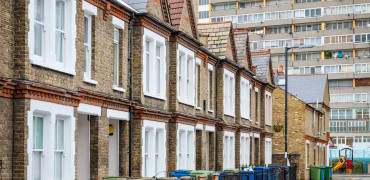The UK, along with Italy, will host an event in November that many feel will be the world's last chance to stop climate change from becoming uncontrollable. COP26 is the 2021 United Nations climate change conference. What will it mean for social housing? Housing Association Magazine’s Joe Bradbury discusses:
For nearly three decades, the United Nations has brought almost every country on the planet together for global climate summits, known as COPs (Conference of the Parties). Climate change has progressed from a minor concern to a worldwide priority in that time.
This year will be the 26th annual summit – giving it the name COP26. With the UK as President, COP26 takes place in Glasgow.
Countries will present proper emission reduction targets for the first time at this year's COP26 summit, which will be hosted by the United Kingdom. They'll also have to show how they'll accomplish previously agreed-upon objectives. As a result, this year's summit will focus on action rather than just nice words.
These summits are a once-in-a-lifetime chance to bring the world's attention to the climate catastrophe.
It's a nice start, but the administration has been resting on its laurels for a while now
Is the UK on track to accomplish its climate goals?
Regrettably, no. The government's initiatives outlined since the beginning of 2020 are insufficient to keep the UK on track to meet its 2030 climate target. As a result, a significant amount of further activity is still required to achieve that aim.
The government has made some good decisions in the past, such as eliminating coal power plants and increasing offshore wind.
The majority of the power grid has been changed, resulting in a rapid reduction in the UK's carbon footprint.
It's a nice start, but the administration has been resting on its laurels for a while now, hesitant to take the next step ahead.
Is it too late?
If we had taken climate change seriously 30 or 40 years ago, we could have made the work a lot simpler for ourselves and spared a lot of misery.
And every time we pass on a new opportunity, we create more problems for ourselves in the future.
Every wasted chance for climate action adds to the future's problems.
But it's never too late to change things. We always have the option of taking a better path.
What does COP26 mean for housing?
The conference is significant to housing associations in that it specifies the same carbon reduction targets that the social housing sector is aiming for – net zero by 2050 – through its mitigation goal.
The UK government has adopted various consequential policies and altered targets that affect housing associations in the run-up to COP26.
These include raising emission reduction objectives to 78% by 2035 (relative to 1990 levels), banning gas boilers in new homes by 2025, and launching the Social Housing Decarbonisation Fund's first wave.
It is obvious that, whilst COP26 may not provide a clear path to improvement for social housing, the conference has the ability to galvanise government and spur bold action on policy issues that directly affect the sector.
Housing associations should use the national spotlight that COP26 will provide to support the appeal for continuing government investment in renewables and prioritisation of the social housing sector.
Decarbonising our homes
One of the most difficult areas where the UK needs to make progress on emissions reductions in the coming years is decarbonising the nation's houses.
Historically, there have been several government initiatives that have either failed or been abandoned early.
Coupled with this, households are often concerned about the disruption, prices, and technologies involved in the process.
These issues are far from insurmountable. But if the UK is to be successful on the home front in the climate crisis, it will need to put up the money, set tough standards, promote skills development and communicate in its upcoming in its forthcoming heat and buildings strategy.
Local governments generally have a greater awareness of local issues than the federal government.
This is especially true in the case of housing, where local governments typically have in-depth knowledge of various construction styles, including their own housing stock, as well as the issues faced by local citizens.
It would therefore be wise that the retrofit be led by local government, with coordination, money, and expert guidance supplied by the UK government, to ensure that heat decarbonisation is customised to the needs of specific communities and homes.
Renewable heating
By 2030, the UK will require roughly 300,000 workers in the fields of energy efficiency retrofitting, heat pump installation, and heat network installation.
There are currently insufficient installers capable of installing low-carbon heating systems such as heat pumps or energy efficiency measures in the current workforce.
Perhaps a good government goal would be to encourage people to work in energy efficiency retrofitting, heat pump installation, and heat network installation.
Joe Bradbury is digital editor of HA magazine



